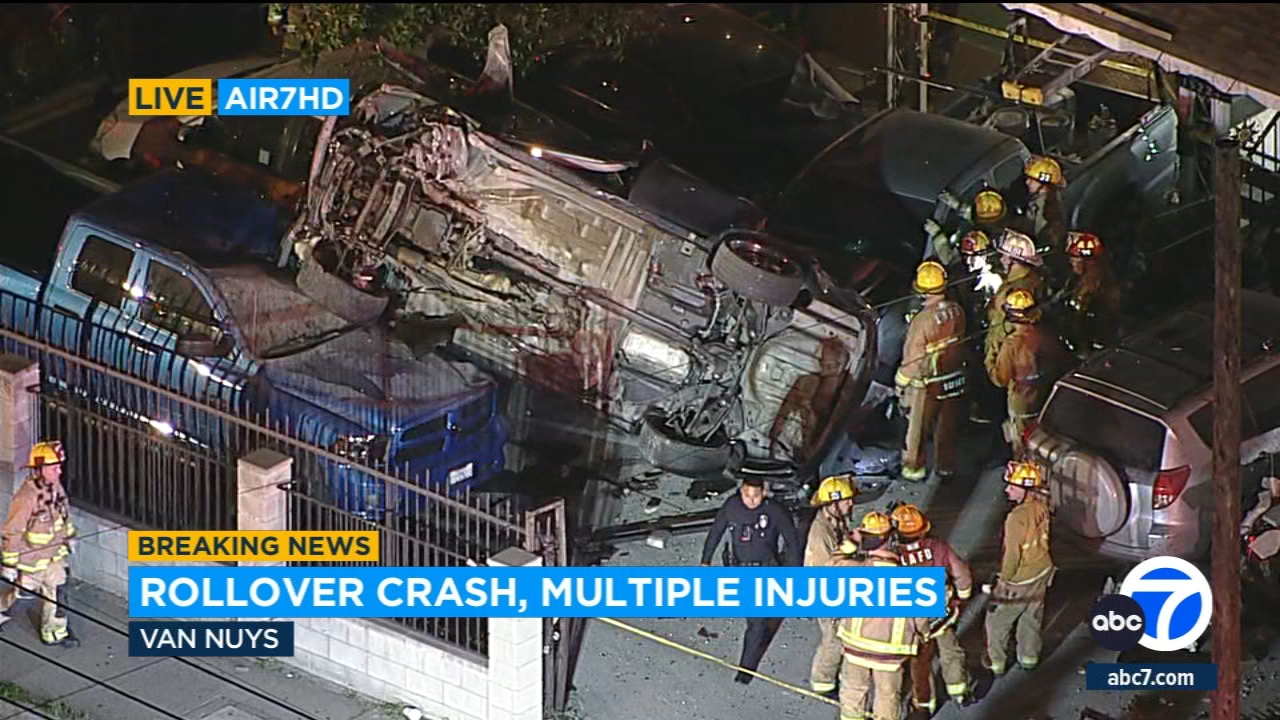Los Angeles becomes 1st US county to hit 1 million COVID-19 cases as region confirms 1st case of UK COVID variant

LOS ANGELES (KABC) -- Los Angeles on Saturday became the first county in the nation to record 1 million COVID-19 cases since the start of the pandemic, and the county confirmed its first case of the new, more contagious coronavirus strain first reported in the United Kingdom.
Officials also reported 14,669 new cases of COVID-19 and 253 additional deaths, bringing the county's totals to 1,003,923 cases and 13,741 fatalities.
Of the 238 deaths, excluding those in Long Beach and Pasadena -- which have their own health departments -- 81 were over the age of 80, 92 were between 65 and 79, 49 were between 50 and 64, 12 people were between 30 and 49, and four people were between the ages of 18 and 29.
RELATED: LA County cemetery, largest in North America, struggles with backlog of burials

The number of coronavirus patients in county hospitals remained unchanged from Friday at 7,597, with 22% in the ICU. After peaking at just over 8,000, hospitalizations have been inching downward in recent days.
The county has a total of about 2,500 licensed ICU beds.
But health officials have warned that hospital numbers could significantly rise again due to people who were infected over the Christmas and New Year's holidays. The county has continued to see elevated daily new case numbers, which always translate to more people being hospitalized.
Although the 1 million figure represents about one-tenth of the overall population, modeling released by the county this week estimated that as many as one-third of residents have actually been infected at some point, most likely without ever knowing it.

Los Angeles County's public health department confirmed the first case of the COVID-19 variant B.1.1.7 in an individual who recently spent time in Los Angeles County. The individual is a male who traveled to Oregon, where he is currently isolating.
The variant was confirmed by Quest Laboratories in Washington state.
Although it is the first confirmed case of the variant in Los Angeles County, public health officials here believe that the strain is already spreading in the community, and are continuing to test samples.
WATCH: Los Angeles County confirms 1st case of UK COVID variant

"The presence of the U.K. variant in Los Angeles County is troubling, as our health care system is already severely strained with more than 7,500 people currently hospitalized,'' Public Health Director Barbara Ferrer said. "Our community is bearing the brunt of the winter surge, experiencing huge numbers of cases, hospitalizations and deaths, five-times what we experienced over the summer. This more contagious variant makes it easier for infections to spread at worksites, at stores, and in our homes.
"We are in the midst of a public health emergency so please do everything you can to protect yourselves and those you love. If you are required to work outside your home, make sure that your workplace adheres to all the mandatory safety directives; there should be no crowding anywhere, protective gear and face coverings provided as required, and infection control measures fully implemented. For those who can, this is the time to stay away from all non-household members, and, when you must be around others, to always keep your distance and wear a face covering. Wash your hands every hour and wipe down frequently touched surfaces multiple times a day. We need to use the tools at hand to keep each other from becoming infected.''
The new strain does not make people sicker, but it is transmitted much more easily, meaning it can rapidly spread through the population.
Meanwhile, the county is working to ramp up vaccination efforts, with plans to open five large-scale vaccine sites on Tuesday. Those will be in addition to the large site opened by the city at Dodger Stadium on Friday, and 75 smaller sites the county is already operating.
The major question now is the availability of vaccines.
RELATED: Dodger Stadium reopens as COVID-19 vaccination site, one of the largest in the country

Dr. Paul Simon, chief science officer for the county Department of Public Health, said that as of Thursday, the county had administered more than 279,000 total doses of vaccine to health care workers and staff and residents of skilled nursing and long-term care facilities. He said the county has administered 44% of the vaccines it has received for use as first doses in the two-dose regimen, along with 30% of those earmarked for use as second doses.
"The remaining doses have either been distributed to our partner vaccination providers or have been allocated for use over the next several weeks,'' Simon said.
Simon said he sympathized with people frustrated at the slow pace of getting the vaccines administered -- particularly among people aged 65 and older, who are already receiving vaccines in other jurisdictions that are deeper into the distribution process. Los Angeles County does not anticipate vaccinating those people until at least February, since it is expected to take until then to finish vaccinating health care workers.
"We too want to expand vaccinations as quickly as possible to those 65 and older,'' Simon said. "The major barrier at this time is the lack of adequate supply of vaccine. We are very hopeful that additional vaccine will arrive soon so we can begin vaccinating seniors in the next several weeks. We recognize seniors and others are understandably anxious and in many cases frustrated about the delay in receiving vaccine. Please know that we are committed to expanding access to the vaccine as quickly as possible.''
City News Service contributed to this report.








